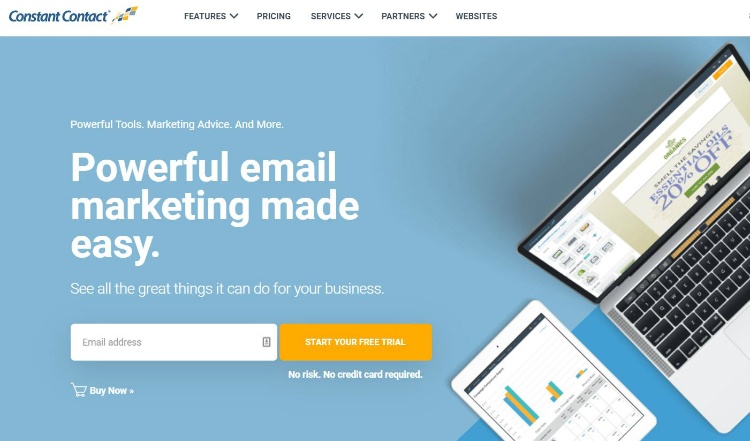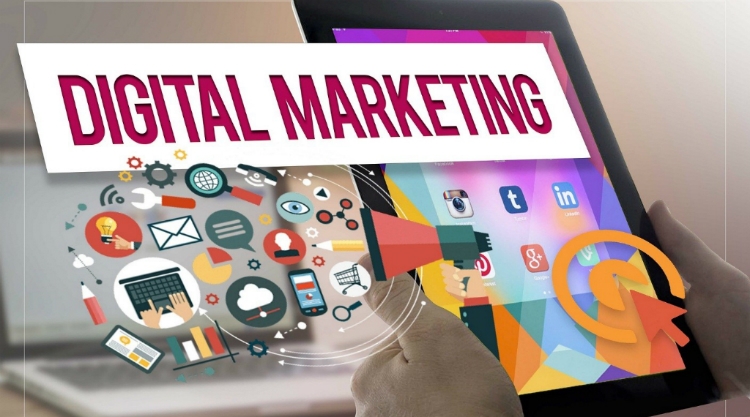The internet has changed how we communicate; it has also transformed how companies market their products. Technology has made it possible for more personalized marketing efforts by collecting data for every customer. Hence, customers enjoy a more personalized shopping experience more than ever, while companies benefit from booming online sales. According to Invespcro, 83% of marketers using data-driven campaigns enjoy an ROI of 500% or more compared to their non-data based alternatives.

As online sales steadily increase, businesses are increasingly adopting and investing in digital marketing to stay relevant. However, marketers must also remember that customer data is a double-edged sword. Business benefits gained by adopting consumer-based analytics can easily be offset from insufficient data security.
After all, a single data breach can prove catastrophic for any business. Therefore, in this article, we will highlight digital marketing trends dominating 2020 and how marketers can protect customers’ data.
Email marketing

Even though it is one of the oldest digital marketing strategies, email is here to stay. It has evolved over the last few years, becoming a major channel for companies looking to stay connected with their customers. Coined “email marketing”, this strategy has graduated from manually-sent generic mass emails to personalized but largely automated communications.
The power of email marketing lies in retargeting. With sufficient data, companies retarget users based on products previously viewed with promotional emails. This increases conversion rates by providing discounts or similar options the company has available.
Social media marketing

Facebook and Instagram are the leaders in social media marketing. While Facebook is losing the young demographic, it remains the top social media and thus, a successful advertising platform allowing businesses to sell to their target customers. Instagram, on the other hand, is experiencing a meteoric rise and is geared towards the younger population, with data showing that over half of Instagram users are 34 years or younger. Digital marketers are leveraging the power of these two social media platforms to engage the right audience, build brand recognition, and increase sales.
Video marketing

Goodbye text-based content and hello video.Goodbye is an exaggeration; yet, there’s no denying that the significantly growing demand for video in a mobile-friendly society.
Videos on smartphones, when done right, can go viral in minutes. And companies are leveraging this opportunity. Strategies include captivating audiences through highly engaging live stream content. This tactic is increasingly adopted by companies looking not only to talk about their products but also to engage with customers directly through the comments section.
3 security risks that come with digital marketing
The increased use of customer data in marketing has led to growing concern: data security. The interaction between businesses and customers involves the collection of Personally Identifiable Information (PII) such as credit card information. Handling PII subjects companies to a difficult task: protecting customer data by preventing unauthorized access.
A data breach is a devastating loss not only for customers but also for companies. Facebook suffered a devastating blow to its reputation after personal data was stolen from 14 million accounts. For smaller companies, losing customer data could be business-ending.
A data breach can happen in several ways, and here are three security risks digital marketers may encounter:
- Malware: This malicious software propagates itself into devices, possibly threatening to expose all your data. Infection avenues abound, with common problems being wormable viruses on websites or pop-up ads. Exact consequences of a malware infection vary depending on the type: spyware can copy keystrokes, negating the protective ability of passwords.
- Phishing scams: These scams mask their malicious intent by appearing as legitimate emails from trustworthy senders through social engineering. These scams can steal your company’s data and customer PII. Falling victim to phishing immediately tarnishes a company’s brand and damages customer confidence, the consequences of which can be dire.
- Hacked WIFI: An open WIFI connection is a hacker’s playground. Do not make this critical mistake of using an unencrypted network as your device can be tracked, and password compromised. The consequences can be devastating such as leaked private information about your location and customer PII.
How digital marketers can overcome these challenges

Yes, there are security risks in digital marketing, so how can marketers protect their data? There are 5 common strategies:
Update anti-virus and anti-malware software
All digital marketing content should be protected with anti-virus and anti-malware software. Regular updates are also essential to provide up-to-date protection. Hackers are continually creating new malware to infiltrate your device. To stave off attacks, always ensure you have the newest version that is kept activated at all times.
Use a VPN

Downloading a VPN to protect your data is one of the most effective digital security strategies. A VPN prevents WIFI hacking by anonymizing your IP address and encrypting every internet access. This is especially beneficial when using an open WIFI network. As a result, all the information you send and receive is secure and hidden from meddlesome hackers.
Limit access to CRM platform
A Customer Relation Management (CRM) platform is an important tool for businesses to collect and analyze a customer’s data. How do you protect your CRM from hackers? The first security measure is to use a strong password.
Also, digital marketers who are not familiar with a company’s CRM should undergo training to learn how to manage it effectively. Last but not least, limit user access. Only a few employees should have admin privileges to a company’s CRM tool.
Use strong password
Knowing you or your company has sensitive data for customers is a big deal. Be responsible for creating strong and unique passwords to access each platform that data is stored on. A weak password is a welcome sign for hackers, who can bypass your lackluster protection to steal data. To ensure your passwords are sufficiently strong and that you can remember your passwords, use a password management tool with a password generator.
Two-factor authentication
Bolster your security control by adding another layer of password protection using two-factor authentication (2FA). This additional code may delay logging into your business account or email by a few seconds. However, double security is worth the wait because you have negated a lot of the risk behind losing your password to keystroking, copying, or social engineering.
Digital marketing has become indispensable for companies because of its effectiveness. However, marketer’s reliance on customer PII to implement targeted personalized campaigns brings a new set of challenges. Security risks such as malware and poor data security, both of which threaten data security and by extension, revenue. Therefore, digital marketers must become more responsible and safeguard PII with robust security measures to prevent data breaches and their repercussions.


